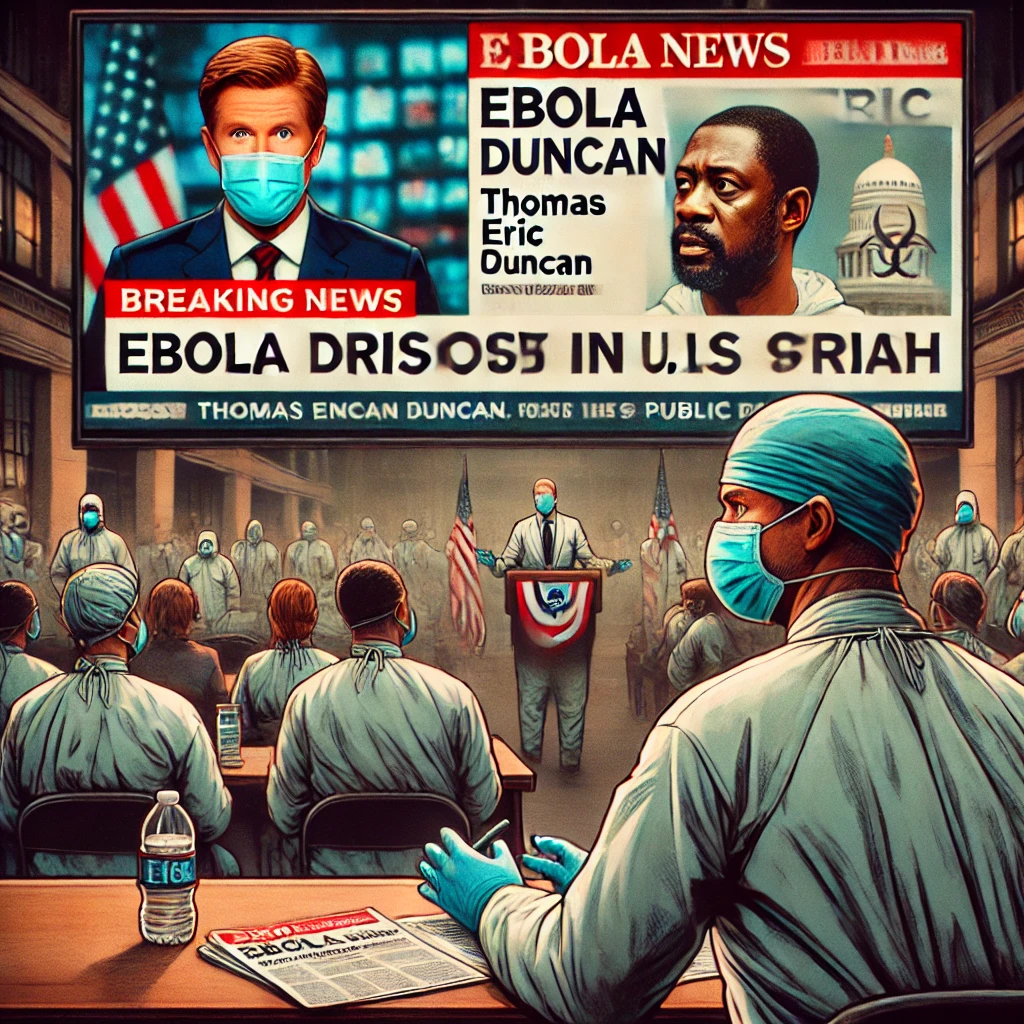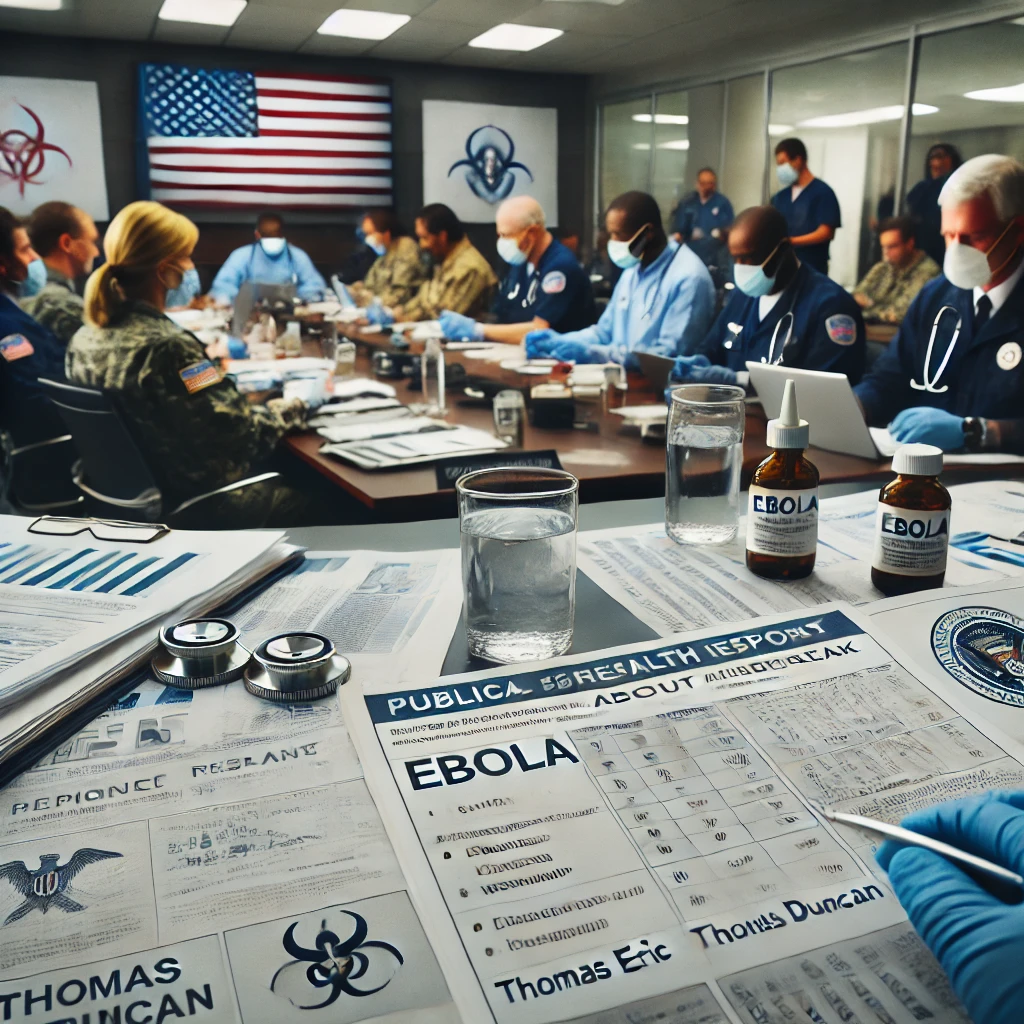On October 8, 2014, the United States faced a significant public health crisis when Thomas Eric Duncan, the first person diagnosed with Ebola in the country, succumbed to the virus at a Dallas hospital. Duncan’s diagnosis marked a pivotal moment in the global fight against Ebola, as concerns about the virus spread beyond West Africa, raising questions about preparedness, response, and the healthcare system in the U.S.

Thomas Eric Duncan’s Journey
Thomas Eric Duncan, a Liberian national, arrived in Dallas, Texas, on September 20, 2014, to visit family. Unbeknownst to him, he had come into contact with individuals infected with the Ebola virus in Liberia. A few days after arriving in the U.S., Duncan began to experience symptoms consistent with the disease, including fever and abdominal pain. On September 28, he sought medical attention at Texas Health Presbyterian Hospital, where he initially faced misdiagnosis and was sent home with antibiotics.
As Duncan’s condition worsened, he returned to the hospital on September 30, where he was finally diagnosed with Ebola. His case highlighted the challenges faced by healthcare providers in identifying and managing a highly infectious disease. Despite being placed in isolation and receiving experimental treatments, Duncan’s health deteriorated rapidly, and he passed away on October 8, 2014.

The Public Health Response
Duncan’s death sent shockwaves across the nation, prompting an immediate and intensive public health response. The Centers for Disease Control and Prevention (CDC) and local health authorities implemented protocols to trace and monitor those who had come into contact with Duncan. This included family members, healthcare workers, and others who may have been exposed to the virus. The incident also triggered widespread fear and panic regarding the potential for an Ebola outbreak in the U.S. Concerns about the virus’s transmission and the adequacy of the healthcare system became prominent topics of discussion in the media and public forums. The CDC held press conferences and launched awareness campaigns to educate the public about Ebola, its symptoms, and the measures being taken to contain the situation.
Legacy of Thomas Eric Duncan’s Case
The case of Thomas Eric Duncan highlighted significant gaps in the U.S. healthcare system’s preparedness for handling infectious diseases. Healthcare professionals expressed concerns about training and protocols for dealing with highly contagious pathogens like Ebola. In response, the CDC developed enhanced guidelines for hospitals and healthcare facilities to better manage patients suspected of having Ebola or other dangerous viruses. Duncan’s tragic death also emphasized the importance of global health security and the need for coordinated responses to infectious disease outbreaks. The U.S. government increased funding for public health initiatives aimed at preventing and responding to such crises, recognizing that threats to health are not confined by borders.
A Shift in Public Perception
In the aftermath of Duncan’s death, public perception of Ebola shifted dramatically. Initially, the virus was viewed through the lens of fear and uncertainty. However, as more information became available, the focus began to shift toward understanding the disease and supporting the global response to outbreaks. This change in perception helped facilitate discussions about healthcare equity, emphasizing the need for improved healthcare access and resources in affected regions. The media coverage surrounding Duncan’s case also sparked discussions about the treatment of individuals infected with Ebola and the stigma associated with the disease. Advocacy groups began to push for compassionate responses to those affected, emphasizing the need to approach public health crises with empathy and understanding.

The death of Thomas Eric Duncan on October 8, 2014, marked a pivotal moment in the fight against Ebola and highlighted the complexities of managing infectious diseases in a globalized world. His case served as a catalyst for improvements in healthcare preparedness, public health policy, and global health cooperation. As we reflect on the legacy of Duncan’s journey, we recognize the importance of learning from past tragedies to build a more resilient and compassionate healthcare system capable of addressing the challenges posed by infectious diseases in the future. His story remains a reminder of the fragility of health and the collective responsibility to protect communities from emerging threats.
